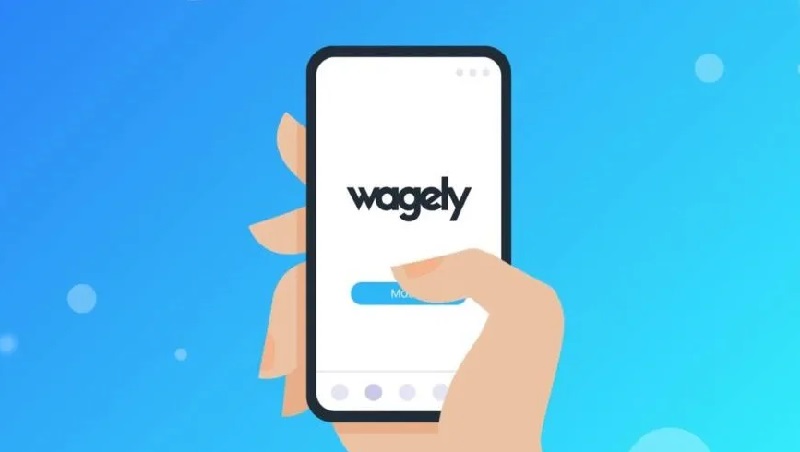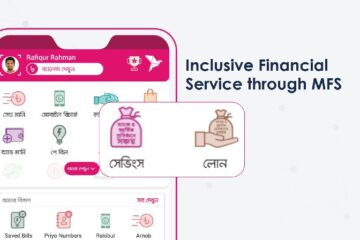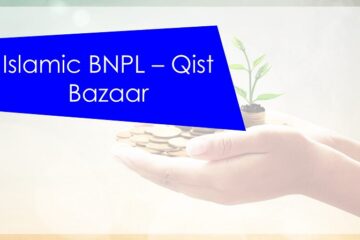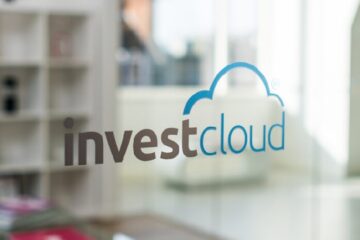Wagely is an Earned Wage Access (EWA) platform based in Southeast Asia, providing a revolutionary solution to financial stress among employees. Founded in 2020 by Tobias Fischer and Saqr Atallah, Wagely aims to address the problem of financial insecurity among workers by allowing them to access their earned wages before payday. As one of the leading financial wellness platforms in the region, Wagely is designed to empower employees by giving them control over their finances, reducing their reliance on debt, and promoting overall financial well-being.
Background and Problem Statement
In many emerging markets, particularly in Southeast Asia, workers often face financial stress due to unpredictable expenses, low savings, and a lack of access to affordable credit. Many employees are forced to rely on high-interest loans or payday lenders to cover emergencies, which can lead to debt cycles and financial strain. Wagely addressed the following key issues:
- Living paycheck to paycheck: Many employees in Southeast Asia live paycheck to paycheck, making it difficult to handle unexpected expenses.
- Lack of savings: The majority of workers in the region do not have significant savings to fall back on, leaving them vulnerable to financial emergencies.
- High-interest loans: Without access to traditional credit, many workers turn to high-interest payday loans or informal lending, trapping them in cycles of debt.
Wagely set out to tackle these problems by offering a platform where employees could access their earned wages on-demand, thus reducing their reliance on debt and improving financial resilience.
Solution: Wagely’s Earned Wage Access (EWA) Model
Wagely offers a simple yet impactful solution by providing real-time access to wages that employees have already earned but have not yet been paid. The platform integrates seamlessly with an employer’s payroll system, allowing workers to withdraw a portion of their wages at any point during the month. Wagely works on the following core areas.
- Payroll Integration: Wagely integrates directly with an employer’s payroll system, tracking how much each employee has earned in real-time.
- On-Demand Wage Access: Employees can log into the Wagely app to view their available earnings and withdraw a portion of their wages before the official payday. The remaining balance is then paid out at the end of the payroll cycle.
- Financial Wellness Features: Wagely also offers tools and resources for budgeting, saving, and managing expenses, empowering employees to take control of their finances.
Key Benefits
The solution offered by Wagely is beneficial for both employees and employer. The benefits of the parties involve in the wage-earning process through earned wage access platform can be outlined as below –
| For Employees | For Employers |
| Instant Access to Earned Wages: Wagely eliminates the need for employees to wait for their paycheck, allowing them to access their earned wages in real time. This ensures they can handle unexpected expenses without resorting to debt. | Increased Employee Retention and Engagement: Offering financial wellness solutions like Wagely can improve employee satisfaction, reduce turnover, and boost engagement, as employees feel more secure in their financial lives. |
| Reduced Financial Stress: By providing workers with more control over their income, Wagely helps reduce the financial stress associated with living paycheck to paycheck, leading to improved well-being and productivity. | Enhanced Productivity: Financial stress is a leading cause of workplace absenteeism and decreased productivity. Wagely helps alleviate this burden, leading to a more focused and engaged workforce. |
| Cost Savings: Employees no longer need to rely on high-interest payday loans or borrow from informal sources, which saves them significant costs and helps prevent debt cycles. | Cost-Effective and Easy Integration: Wagely’s platform is designed to integrate seamlessly with existing payroll systems, ensuring minimal disruption to business operations. |
Growth and Expansion
Wagely has experienced rapid growth since its inception, driven by the demand for financial wellness solutions in Southeast Asia’s large and underserved workforce. The company initially launched in Indonesia, where it partnered with prominent local employers. Key milestones in Wagely’s growth include:
- Expansion into Bangladesh: In 2021, Wagely expanded into Bangladesh, a market with similar financial challenges for employees. The company partnered with leading employers in the garment and manufacturing sectors.
- Strategic Partnerships: Wagely has formed strategic partnerships with large employers across industries such as retail, manufacturing, and healthcare, giving it access to a broad base of employees who benefit from its EWA solution.
- Investment and Funding: Wagely raised $8.3 million in a pre-Series A funding round, which was used to scale its operations across Southeast Asia and develop additional features for its platform.
Impact of Wagely’s EWA Platform
Wagely’s platform has had a profound impact on both employees and employers across Southeast Asia. Here are some key outcomes:
- Improved Financial Resilience for Employees
- 80% of users report reduced financial stress after using Wagely, citing the ability to access wages for emergency expenses without resorting to high-cost loans.
- Increased savings: Wagely’s platform encourages better financial planning and saving behaviors by providing tools to help employees track their earnings and manage their expenses effectively.
- Better Employer-Employee Relationships
- Companies using Wagely report higher employee retention rates, as financial wellness is seen as a valuable benefit that boosts employee loyalty.
- Increased productivity: By reducing employees’ financial worries, Wagely helps create a more focused, motivated, and productive workforce.
- Positive Social Impact
- Wagely’s model addresses some of the fundamental issues of financial inclusion in Southeast Asia by providing access to wages for workers who may not have traditional banking services. This contributes to the overall goal of increasing financial access and reducing poverty in the region.
Challenges and Future Opportunities: Despite its success, Wagely faces several challenges as it continues to scale.
1. Regulatory Landscape
Each market in Southeast Asia has its own regulatory framework regarding financial services, making it crucial for Wagely to navigate varying rules and compliance issues. Ensuring compliance with local regulations around wages, loans, and fintech will be key to its continued expansion.
2. Financial Literacy
While Wagely provides access to earned wages, ensuring that users fully understand and manage their finances responsibly is another challenge. The platform’s financial education tools help, but scaling these efforts to reach more workers effectively remains a priority.
3. Competition
As the EWA model gains popularity globally, Wagely faces increasing competition from both local and international fintech players offering similar services. To stay competitive, Wagely must continue innovating and expanding its range of financial wellness features.
Future Outlook
Looking ahead, Wagely plans to expand further across Southeast Asia, with potential markets in Vietnam, the Philippines, and other developing economies where financial inclusion remains a challenge. The company also aims to deepen its product offerings by introducing additional financial services, such as savings programs, insurance, and budgeting tools, all within the app, making it a comprehensive financial wellness platform for users.
Wagely has emerged as a leading player in the Earned Wage Access space, revolutionizing how employees manage their finances and reducing the dependency on high-interest loans. By addressing key financial pain points faced by the workforce in Southeast Asia, Wagely has significantly improved financial well-being for employees while delivering tangible benefits for employers. As the company continues to grow and expand its product offerings, it is well-positioned to play a major role in the future of financial wellness in the region.










